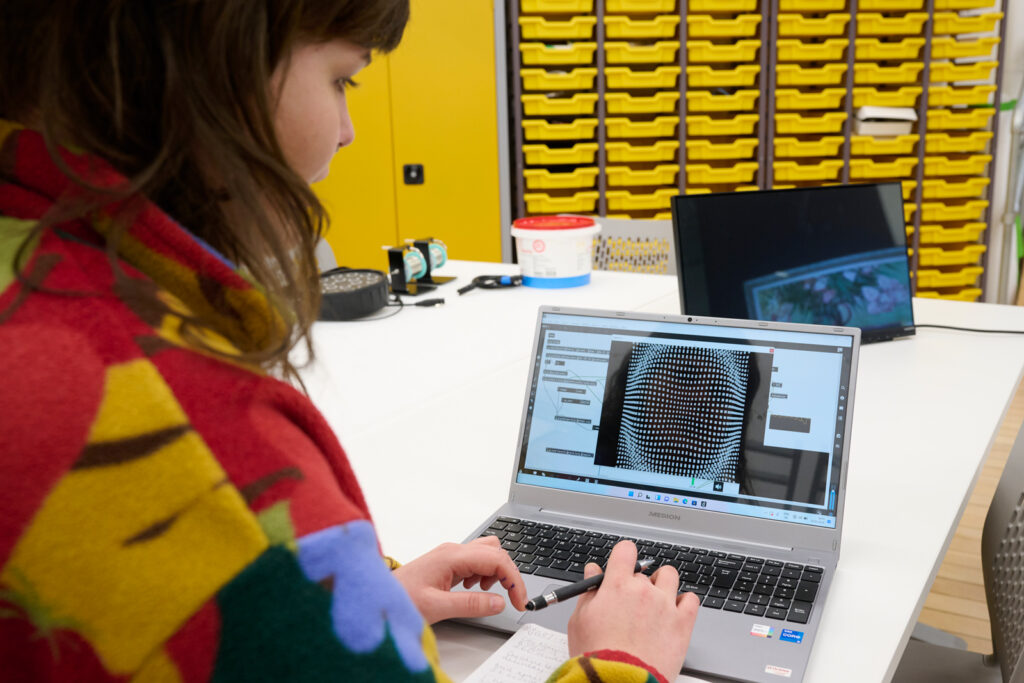
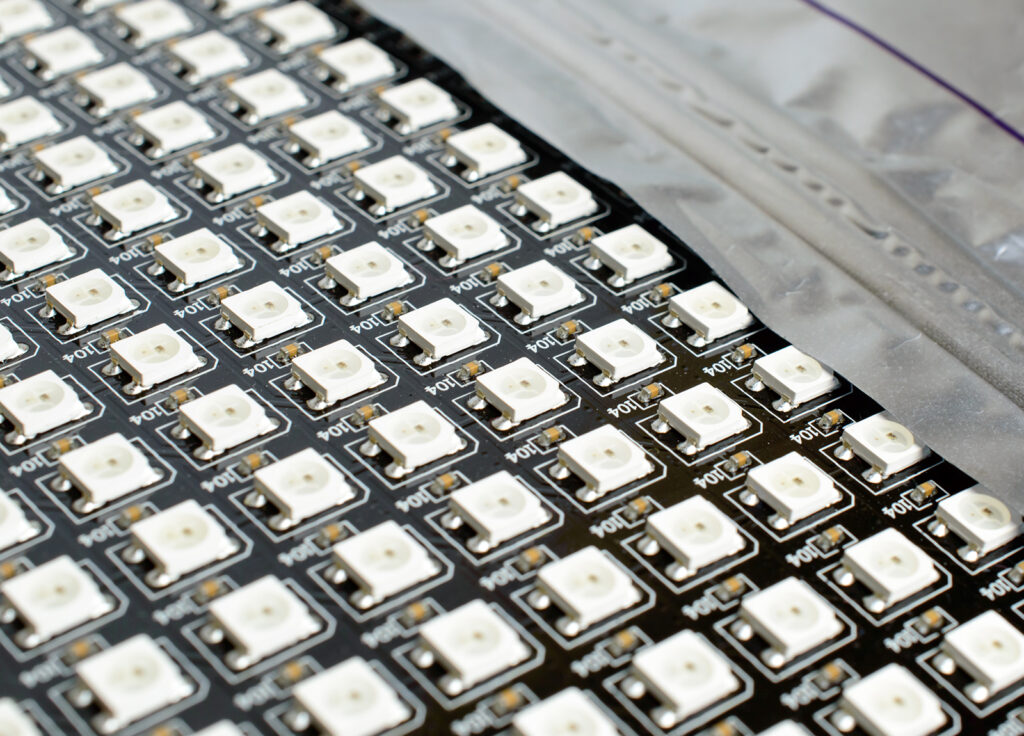
Creative Computing MSc
Discover how to use advanced programming and creative practice to design interactive experiences that push the boundaries of digital creativity.
-
Course Duration
Full-time 1 year
-
Annual Fees
- Home (full-time) £11,000
- Overseas (full-time) £24,000
-
Course Start
September 2026
- How to Apply Request a prospectus (opens in a new window)
Our MSc Creative Computing course will prepare you for advanced professional roles within the fields of creative technology. This experimental approach will challenge you to apply complex computational thinking to create sophisticated outcomes, enhancing your awareness of creative computing practices and methodologies.
The curriculum will help you engage with advanced programming, write code, prototype, and develop software for creative computational applications. The course will foster an advanced understanding of professional technologies and workflows, enabling you to systematically and creatively resolve complex issues. The course focuses on designing digital experiences within the context of creative practices. With a research-led approach, you will explore the boundaries between technology and creativity and their symbiotic relationship. Through project-based learning, you will enhance your skills in programming languages, physical computing, and software development for creative practitioners.
The course encourages a critical approach to creative computing, considering social and ethical implications and promoting inclusivity and diversity in technology use. By the end, you’ll have a professional approach to computational practice ready for large-scale projects in the creative digital sector or within the digital technology sector more broadly.
Why study with us
-
Preparation for advanced professional roles
The Creative Computing course equips you for advanced roles in creative technology, enhancing your expertise in the field.
-
Project-based skills
Enhance your programming, physical computing, and software development skills through project-based learning, fostering original and innovative professional methods.
-
Experimental and challenging approach
Engage in an experimental approach that challenges you to apply complex computational thinking for sophisticated outcomes, increasing your awareness of creative computing practices and methodologies.
-
Interdisciplinary collaboration
Benefit from an interdisciplinary approach that reflects industry practices, integrating new and emerging concepts and technologies.
-
Access to professional-level resources
Utilise a variety of professional resources, including contemporary technology, media labs, 2D & 3D studios, computer labs, high-specification PCs, digital darkrooms, and specialist software.
-
Emphasis on social responsibility
Promote a socially responsible use of technology, challenging traditional boundaries in the field of creative expression.
Course Details
This programme is a one-year course, including 30 weeks of direct teaching time and a 15-week final project. You will need to complete five units and one 60-credit major project (180 credits in total). All units on the course are compulsory and must be passed in order to complete the award. If you study part-time your modules will be split across two years. Full course details, including aims and assessment criteria, will be provided in the course specification upon validation.
Core practice and context in Creative Computing (60 credits)
This unit launches your master’s study experience at Norwich, encouraging you to explore leading practices and emerging research in creative computing, enhancing your ability to design and produce innovative computational workflows. Through discovery-based learning, you will develop a deep understanding of computational technologies and their applications in technical, conceptual, and cultural contexts. The integration of theory and practice aims to enhance your creative agency and technical fluency, equipping you for careers in computational practice, the creative industries, or digital technology. This unit encourages an expanded approach to creative thinking, examining broader systems and the interconnected boundaries of creative computing with other fields. Key topics include computational languages, algorithms, coding, software development, user experience, data visualisation, speculative design, machine intelligence, and emerging technologies such as AR/VR and AI. This hands-on approach encourages innovative thinking and practical application, preparing you to tackle real-world challenges in the creative industries.
Advanced technical skills in Creative Computing (20 credits)
This unit focuses on developing advanced technical skills necessary for developing computational practices. Through individual and group projects, you will engage with a wide range of media and processes, integrating digital and analogue techniques to solve theoretical and conceptual challenges. The unit covers software development, physical computing, AI and machine learning, programming languages like Python and JavaScript, and tools such as Unity. You will explore innovative approaches to expand your problem-solving capabilities. This hands-on experience aims to enhance your practical skills and broaden your working methods, preparing you for working with contemporary and emerging media platforms.
Dialogue, debate, and domain knowledge in Creative Computing (10 credits)
This unit explores leading practices and emerging research within creative technology, emphasising critical frameworks in socio-economic, political, ethical, and cultural contexts. Through reflective analysis and interactive sessions, exploring themes like machine learning theory, games theory, human-computer interaction, semiotics, Gestalt psychology, globalisation, and consumption. The unit aims to enhance your capacity for complex critique and culturally aware, ethically engaged practice, utilising discursive interaction to inform your inquiry methods. A research-led approach will help you explore the boundaries between creative technology disciplines, positioning you as a critically engaged practitioner ready to contribute to contemporary and cultural debates.
Professional technical skills in Creative Computing (20 credits)
This unit encourages your exploration of a range of professional-level technical skills essential for innovative creative computing practice. Building on the ‘advanced technical skills’ unit, it focuses on experimentation across a range of media, advancing your personal and practical skills. Through individual and group projects, you will refine computing processes, exploring innovative solutions that expand your problem-solving abilities and creative thinking. Unit briefs focus on creating effective solutions for contemporary and emerging media platforms, supported by practice-based research projects. The unit covers software practices, physical computing, algorithmic design, and emerging technologies like AR/VR/AI, promoting an expanded approach to contemporary creative computing. Focusing on contemporary techniques, you will blend theoretical concepts with technical skills, enabling you to create innovative and complex outcomes, essential for advancing in the dynamic creative technology industry.
Advanced critical context in Creative Computing (10 credits)
This unit is designed to enhance your knowledge of leading practices and emerging research in creative technology. By developing effective research and reflective strategies, you will enhance your critical understanding of key methodologies and gain insights into creative thinking within socio-economic, political, ethical, and cultural contexts. Building on the ‘dialogue, debate, and domain knowledge’ unit, you will explore themes like machine learning theory, games theory, human-computer interaction, semiotics, Gestalt psychology, and globalisation. You will develop questions aligned with your practice able to contribute to broader knowledge debates. Research-led projects will support your critical and reflective analysis enhancing your ability to synthesise conceptual and practical problem-solving and expand social and ethical dialogues in relation to computational technologies.
Major project (60 credits)
This unit represents the culmination of your master’s study, integrating everything you’ve learned on your studies. You will identify a research question, plan a project to test hypotheses, and work towards innovative outcomes, which may involve multiple outputs or a focused exploration of one aspect of your practice, supported by feedback from tutors and industry professionals. This unit encourages exploring creative coding, computational thinking, modelling, and machine learning, while examining the historical, theoretical, cultural, technical, and economic contexts of your discipline to deliver a project that makes an innovative contribution to the creative technologies sector. This project will enable you to reflect on your practice, demonstrate your creativity and technical skills, and support your professional practice as an ethically minded, astute professional who can synthesise experiments and ideas into complex creative outcomes.
Download course specifications
Learning and teaching
The course is delivered through a variety of engaging learning and teaching methods.
-
Lectures
-
Seminars
-
Tutorials
-
Technical labs
-
Independent and group work
Assessment
Our assessment methods will vary based on the unit you choose and provide a comprehensive measure of your learning and progress. These methods may include:
- Critically reflective essay
- Course work
- Presentations
- Learning journal
- Reflective evaluation
- Body of creative work
- Reflective research report
- Team project evaluation
- Major project
- Supporting documentation
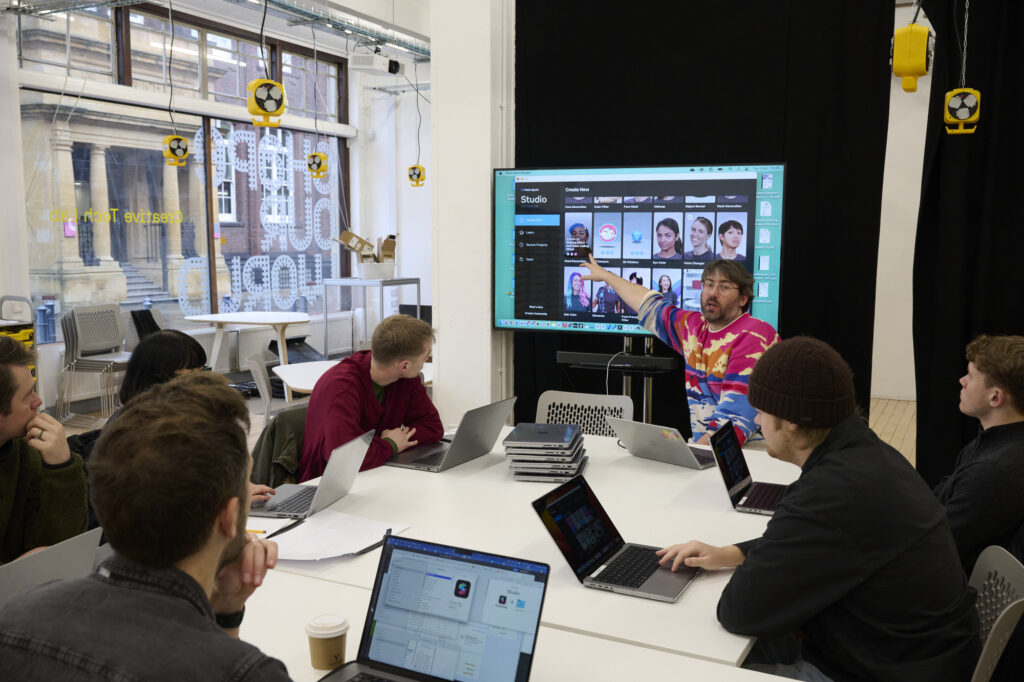
Typical career paths
Specialist skills in the field of Creative Technologies are in high demand. Upon completion of this course, you’ll have gained specialised skills tailored to your chosen project focus, equipping you for a wide array of roles within the cultural and creative industries. You’ll emerge with a deep, practical understanding of computational technologies, alongside advanced computing and coding expertise. The course will improve your analytical thinking, problem-solving, and decision-making abilities, preparing you for a successful and dynamic career in the intersection of arts and technology.
This course prepares you for a career in a variety of disciplines related to creative computing, including:
- Creative technologist
- Creative developer
- Web developer
- Digital project manager
- Web and mobile app development
- Producer roles within digital agencies
- Computer graphics designer
- Software developer
- Digital strategist
- Interface and interaction designer
- Arts and live events technologist
The UK’s creative sector is thriving, contributing £111.7 billion annually to the economy and offering over 2 million jobs.
Department for Digital Culture Media and Sport (DCMS)
Entry Requirements
We typically require an honours degree of 2:1 or above. Applicants should have a good working knowledge of programming gained from work, university study, or personal interest. Details on your programming experience should be included as part of your application.
Those with industry experience or relevant skills from non-traditional backgrounds are encouraged to apply, including individuals currently employed. If you’re unsure about your eligibility, please contact us for guidance before applying.
English language requirements (International/EU)
If English is not your first language, IELTS 6.5 (or equivalent) is required, with a minimum of 5.5 in reading, writing, listening, and speaking. We also accept other English language qualifications.
International Qualifications
We accept a wide range of qualifications from all over the world.
For information on entry requirements from your country, see our international pages.
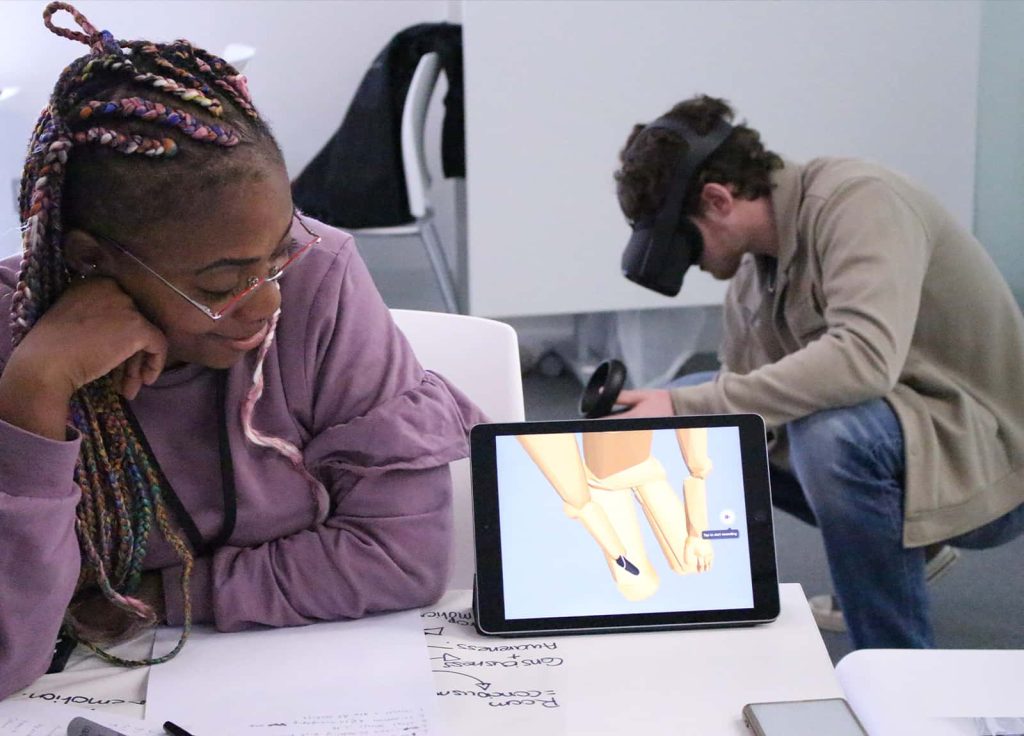
Fees and funding
Home
Tuition fees for the 2026/27 academic year
- Full time: £11,000
The level of fee that you will be asked to pay depends on whether you’re classed as a UK
(home) or international student. Check your fee status.
Fees for subsequent years
The rules for inflation on fees in subsequent years depend on the type of fee status and level
For Home and overseas postgraduate degree students starting in 2026, fees will remain the same for each year of your course.
Funding your study
Depending on your circumstances, you may qualify for a bursary, scholarship or loan to help fund your study and enhance your learning experience. Find out more about scholarships and funding.
International
Tuition fees for the 2026/27 academic year
- Full time: £24,000
The level of fee that you will be asked to pay depends on whether you’re classed as a UK
(home) or international student. Check your fee status.
Fees for subsequent years
The rules for inflation on fees in subsequent years depend on the type of fee status and level
For home and overseas postgraduate degree students starting in 2026, fees will remain the same for each year of your course.
Funding your study
We offer a range of scholarships and bursaries for international students. To find out more and see if you’re eligible, please visit the scholarships for international students page.
Additional costs
Your course fees cover the cost of studies, and include loads of benefits, such as the use of our library, support from our expert employability team, access to workshops and free use of the IT equipment across our campuses. There are also other costs which you may need to consider.
How to apply
Home
Applications to our postgraduate courses should be made directly to Norwich University of the Arts using a Postgraduate Application Form.
Applications should be returned to admissions@norwichuni.ac.uk
Please see our Terms and Conditions and Admissions Policies for further details.
International
Postgraduate applicants can only apply directly by completing the below online application form or emailing the downloadable form to ioadmissions@norwichuni.ac.uk
International students requiring a visa should apply as soon as possible in the year they wish to start. Email our International Team for more information. Please see our Terms and Conditions and Admissions Policies for further details
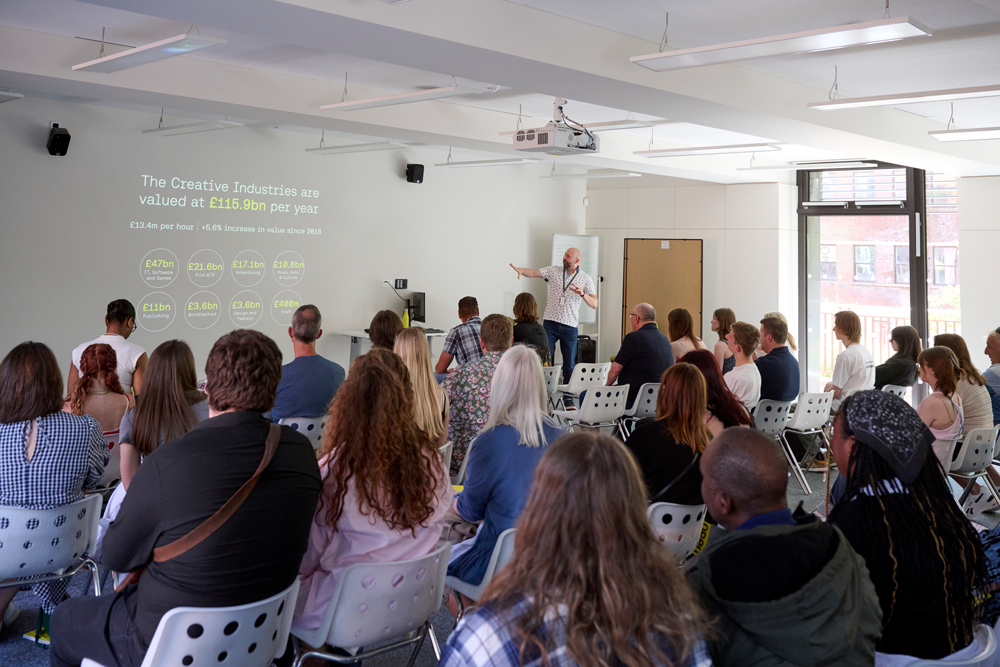
Latest news
-
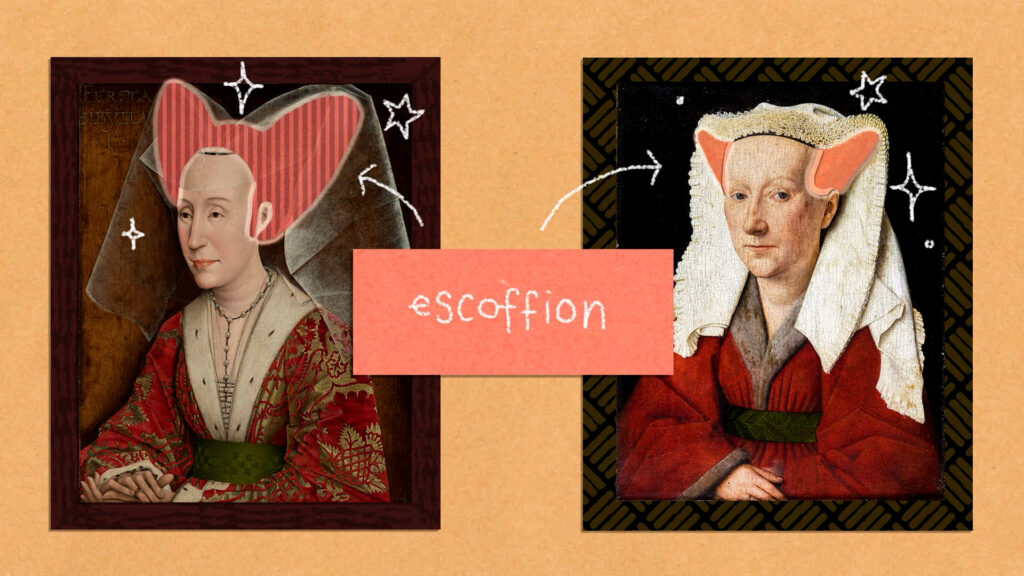 Institution •
Institution •Director of Research Development collaborates with TED-Ed on new animation
Professor Alison Goodrum worked with the TED-Ed team to develop the short film which explores the history of hats. -
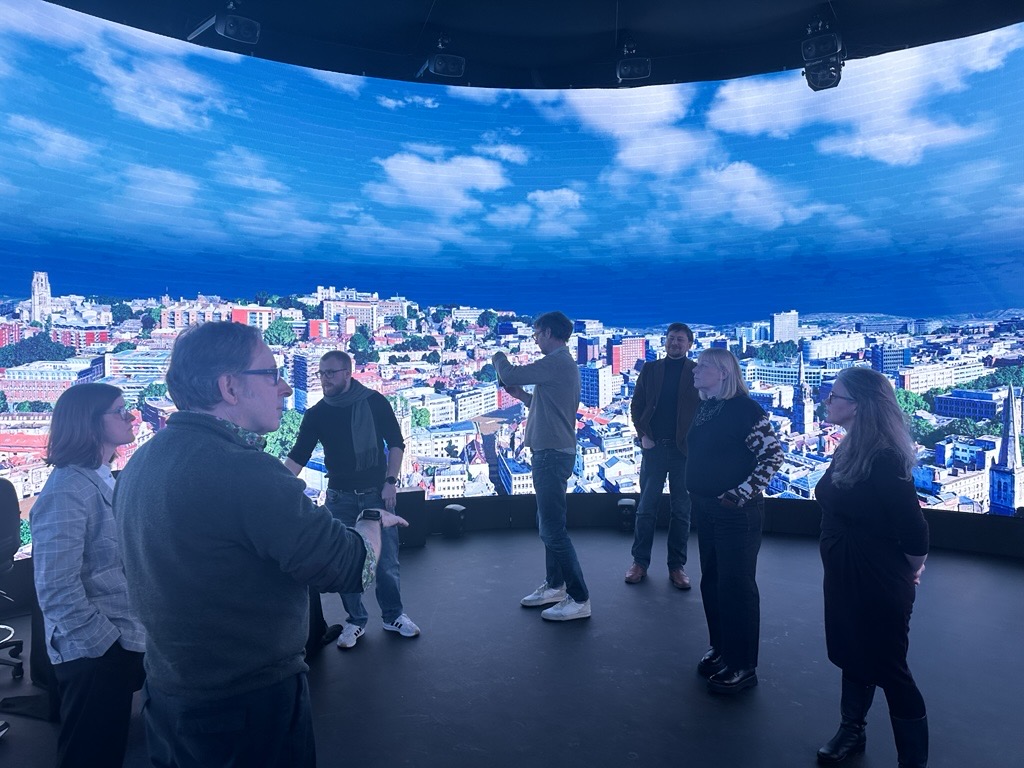 Institution •
Institution •Norwich University of the Arts showcases institutional and research achievements to Research England
The University was delighted to welcome representatives from Research England, to share key institutional and research developments. -
 Institution •
Institution •Norwich University of the Arts earns prestigious 5-star QS Star Excellence rating fo Teaching
Norwich University of the Arts has been awarded an overall four-star rating in the prestigious QS Stars University Ratings, marking a significant milestone in the University’s first-ever submission to the internationally recognised assessment framework. -
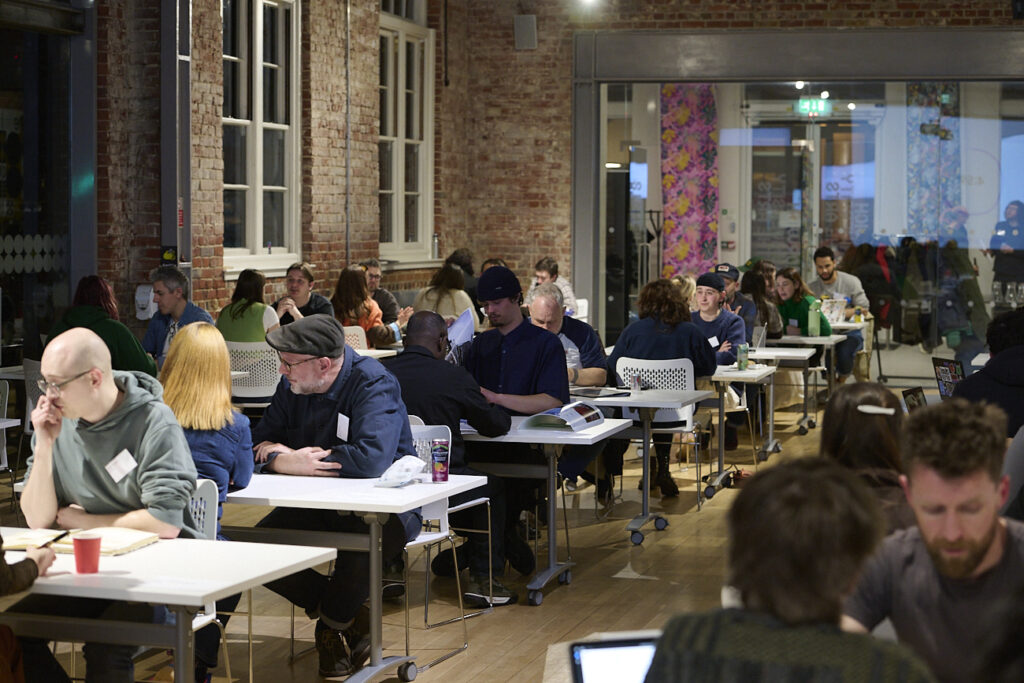 Employability •
Employability •Norwich University of the Arts celebrates 10 years of the Big Book Crit
Hundreds of Norwich students have shared their work with leading creative professionals over the last decade. -
 BA Business Management •
BA Business Management •Dean of Creative Education Awarded Prestigious Principal Fellowship from Advance HE
The University is delighted to announce that Hilary Carlisle, Dean of Creative Education and Professor of Design, has been awarded Principal Fellowship of the Higher Education Academy (PFHEA) by Advance HE -
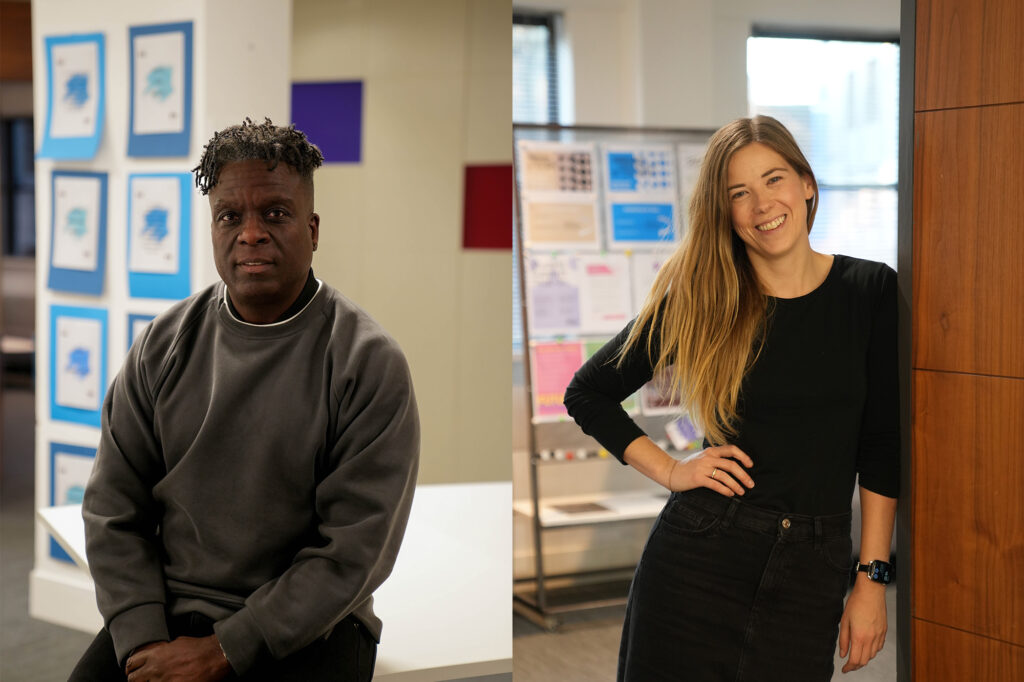 BA Business Management •
BA Business Management •In conversation with Norwich’s newest lecturers in Marketing and Business Management
We joined Norwich's newest lecturers, Stephen Balmer-Walters and Laurie McAllister, to find out more about the University's Marketing and Business Management courses. -
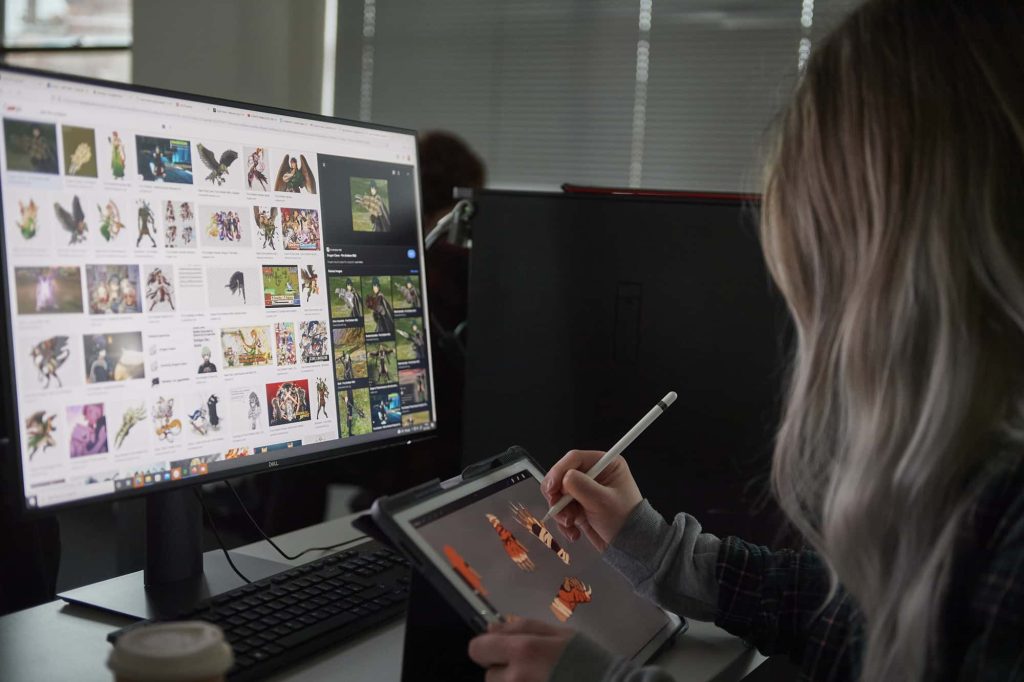 BA Games Art and Design •
BA Games Art and Design •East of England set to become UK’s next Games Cluster, says landmark report
A major new report is calling for the creation of a Games Cluster for the East of England — positioning the region as a national leader in creative technology and immersive media. -
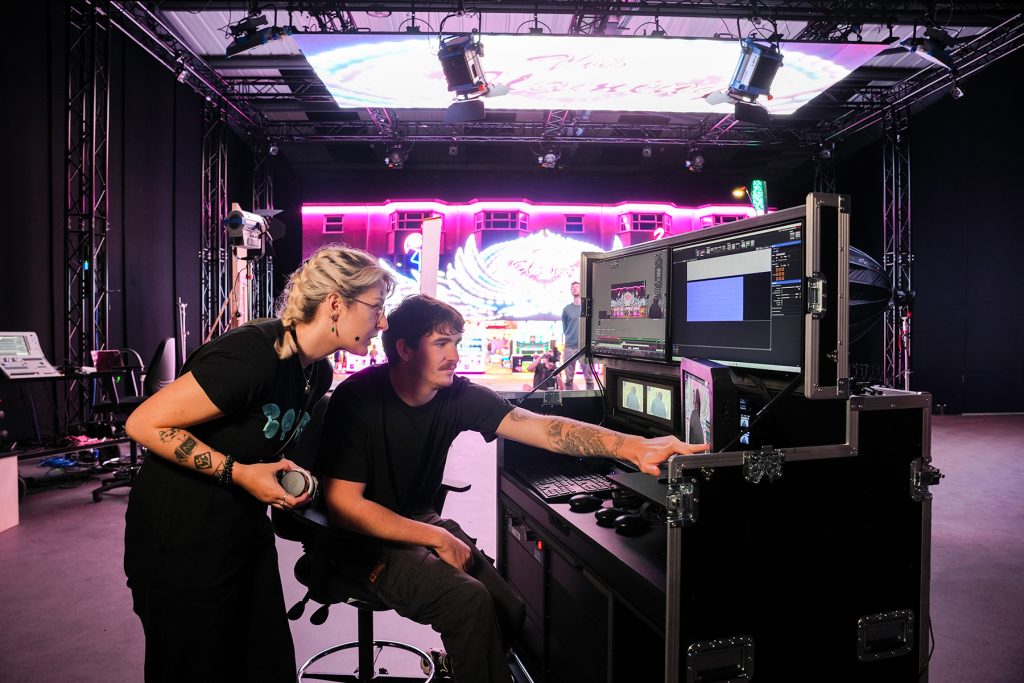 BA Animation •
BA Animation •Cutting edge Sony Virtual Production Studio puts Norwich on the map for the future of film and gaming
Norwich University of the Arts and Sony open new landmark facility for students, creators and the community. -
 BSc Degree •
BSc Degree •Norwich University welcomes new academics to its Psychology and Computer Science courses
Lyndsey Wallace joins the University as Senior Lecturer for BSc (Hons) Psychology, with Jawwad Chattha joining as Course Leader for BSc (Hons) Computer Science. -
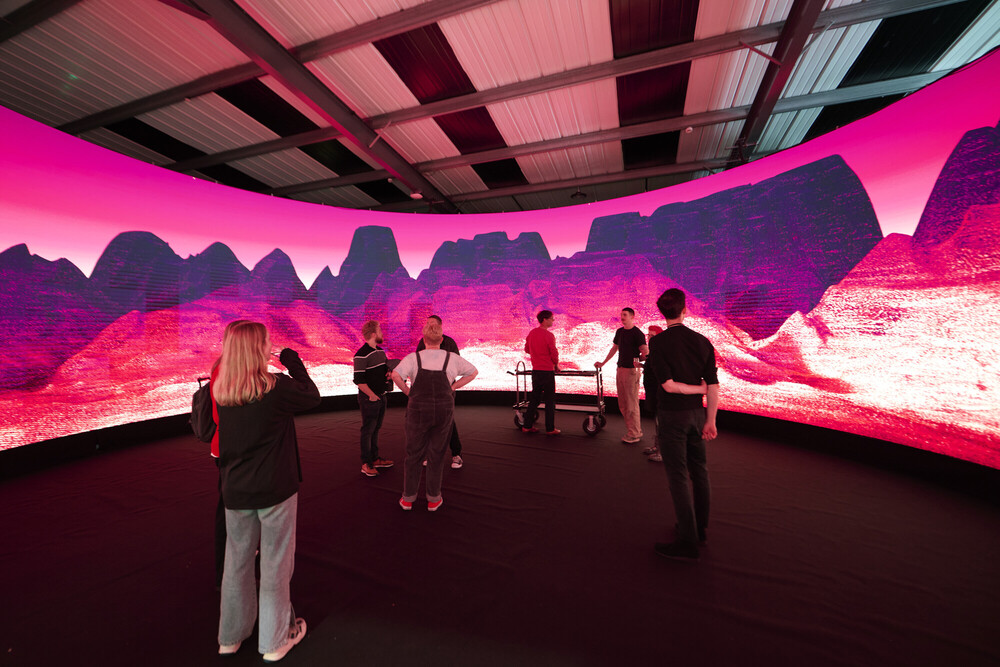 Institution •
Institution •Norwich University of the Arts Makes Historic Debut in Main Guardian University Guide
Norwich University of the Arts has marked a historic milestone, with its first-ever appearance in the Guardian University Guide’s national rankings. -
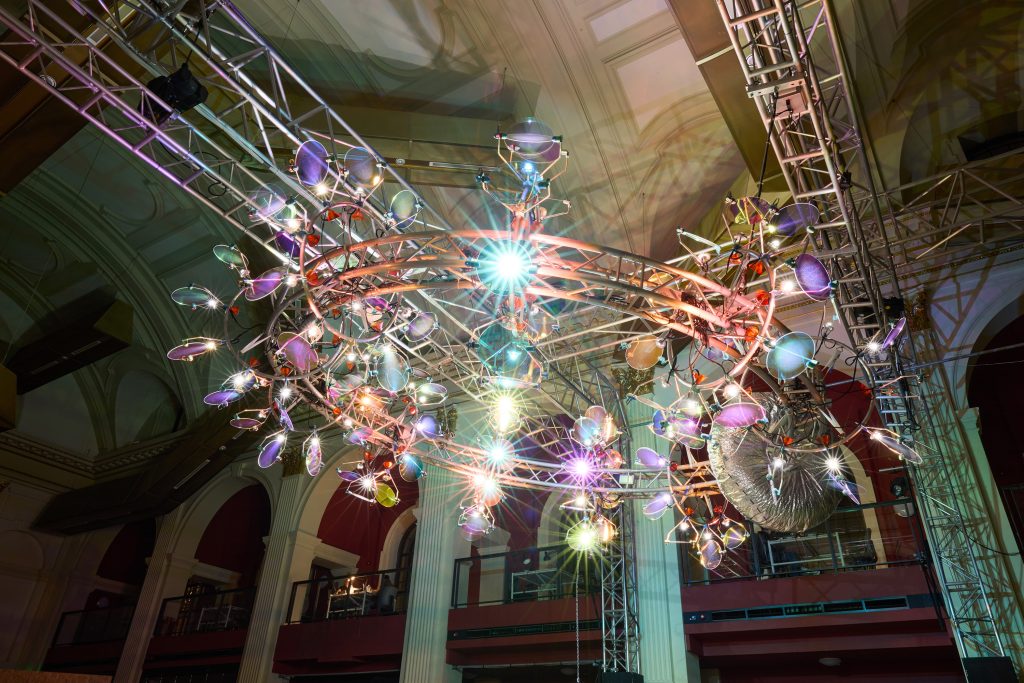 Institution •
Institution •Norwich University of the Arts acquires Mechanism by artist Andrew Kearney
The kinetic installation, which transforms the sounds of Norwich into a daily light sequence, was commissioned in 2024 as a temporary intervention for the University’s historic Bank Plain building. -
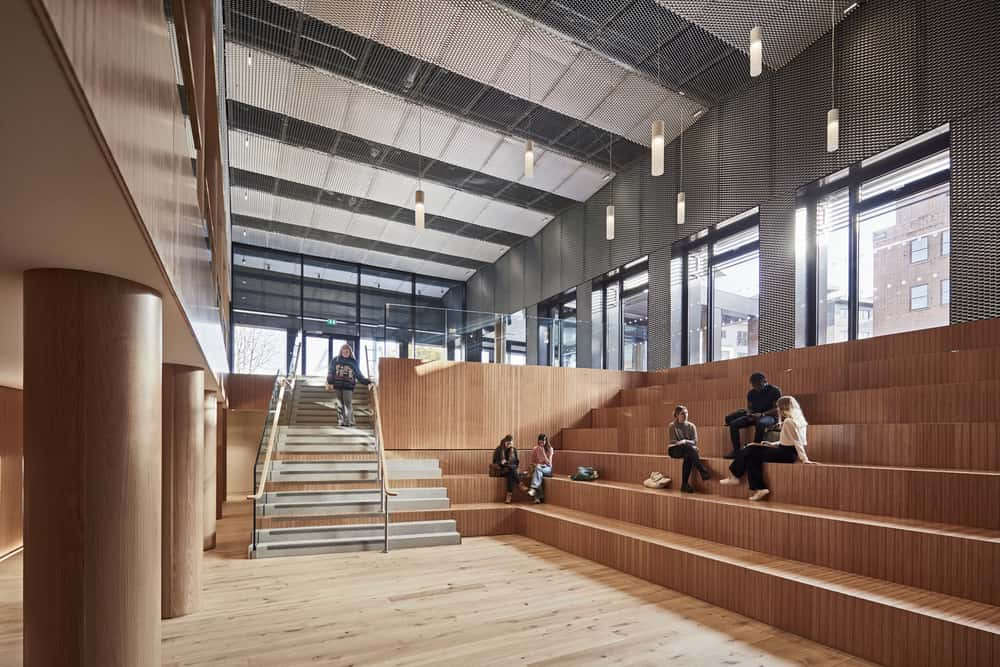 Cost of living support •
Cost of living support •Cost of living Support Package 2025-26
We are proud of the measures we introduced over the last few years and want to continue many of them in 2025/26 to ensure this support remains in place. -
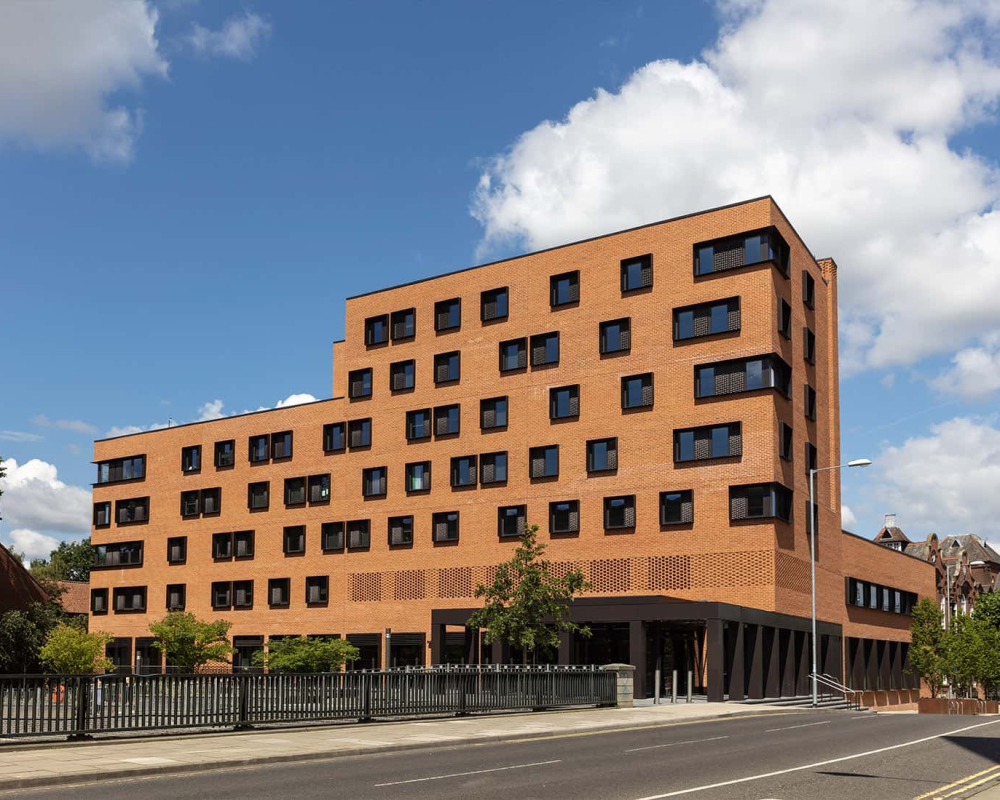 BA Degree •
BA Degree •Norwich University of the Arts moves up 25 places in The Complete University Guide
Norwich University of the Arts has been ranked among the UK's top two specialist creative arts universities — and the highest outside London — in the 2026 edition of The Complete University Guide -
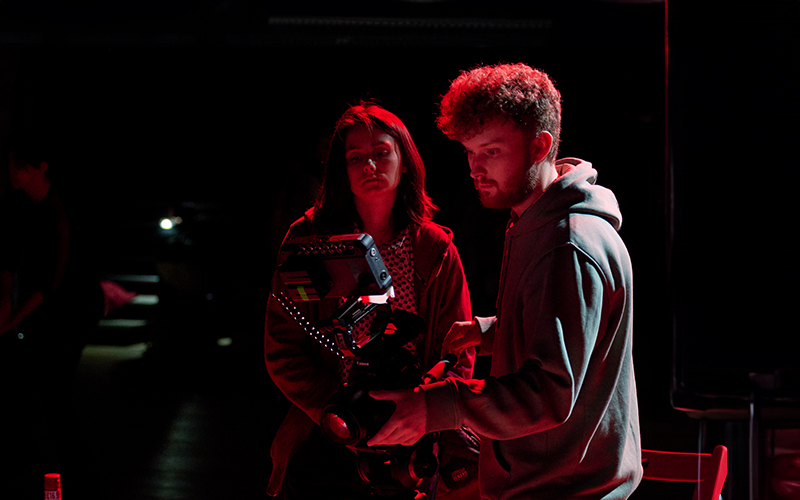 MA Communication Design •
MA Communication Design •What's the difference between undergraduate and postgraduate study?
We explore how postgraduate study could unlock your creative potential and future prospects. -
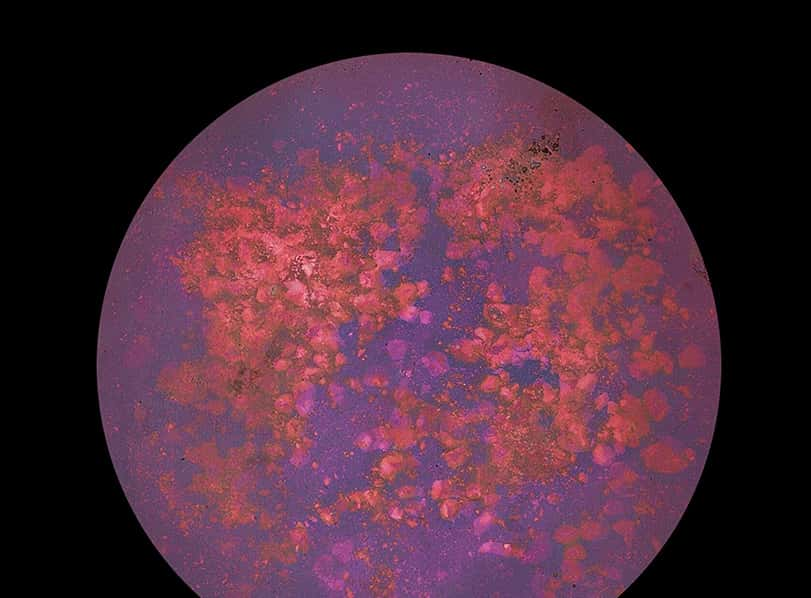 Alumni •
Alumni •Fine Art graduate selected to exhibit at pioneering space research centre
Holly Sandiford has recently exhibited at Leicester's Space Park as part of Space: Science & Nature. -
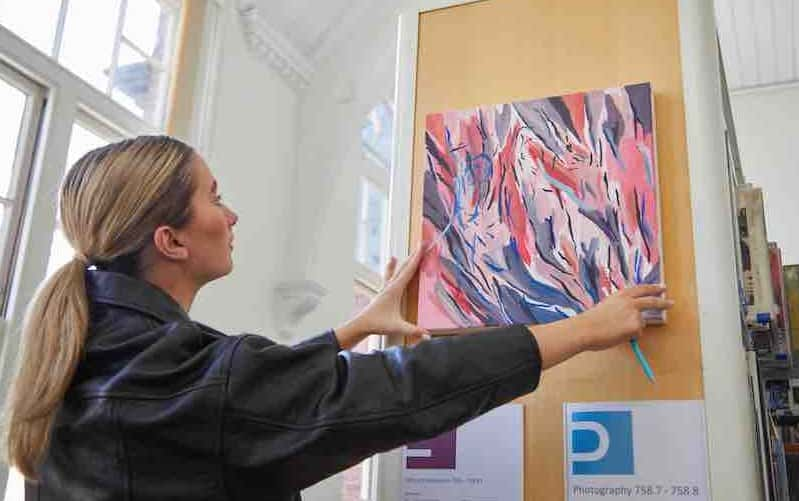 MA Degree •
MA Degree •MA Fine Art students curate exhibition takeover at NUA Library
The exhibition ‘Bibliotheca Interpellations’ showcased multi-disciplinary works by MA Fine Art.
Related courses
Discover our courses and take the first step towards unleashing your potential
-
Visit the Data Science and AI in Creative Industries MSc course page
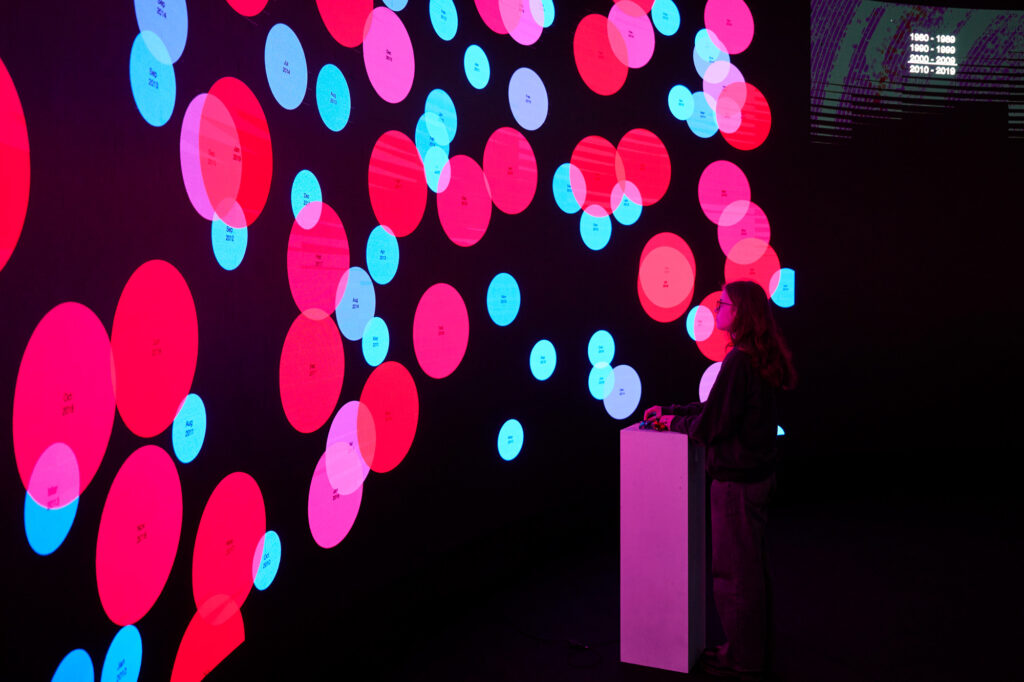
- Filter courses by study level: Postgraduate
- Filter courses by duration: Full time
- Filter courses by start month: September
- Filter courses by subject: Data Science and AI in Creative Industries
Data Science and AI in Creative Industries MSc
Learn how computer science, data analytics, and AI drive innovation and enhance everyday experiences in the creative industries.